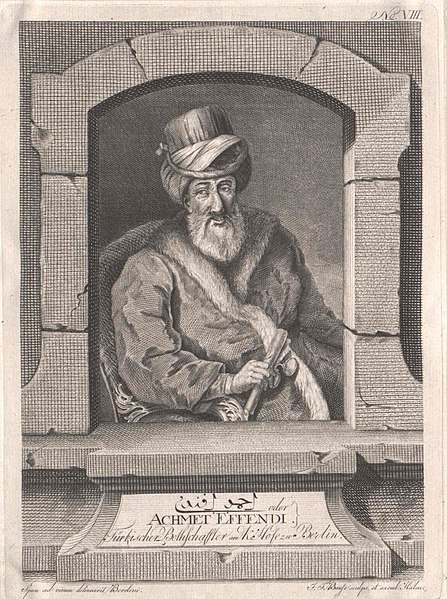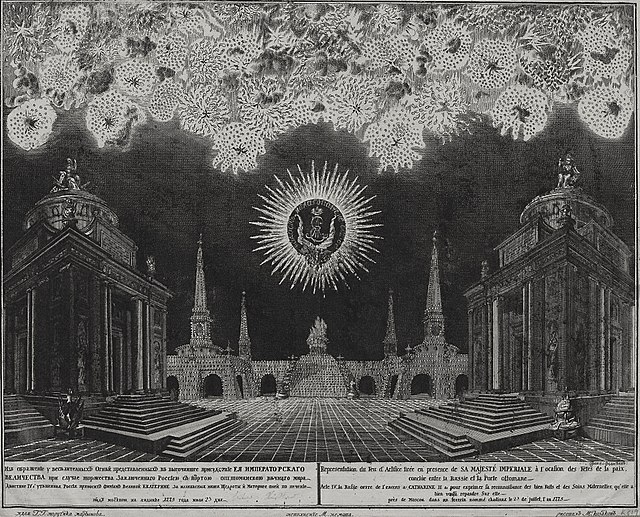The Danubian Principalities was a conventional name given to the Principalities of Moldavia and Wallachia, which emerged in the early 14th century. The term was coined in the Habsburg monarchy after the Treaty of Küçük Kaynarca (1774) in order to designate an area on the lower Danube with a common geopolitical situation. The term was largely used then by foreign political circles and public opinion until the union of the two principalities in 1859. Alongside Transylvania, the United Principalities of Moldavia and Wallachia became the basis for the Kingdom of Romania, and by extension the modern nation-state of Romania.
Royal Full Achievement of Arms (coat of arms) of the Rosetti (Rossetti) family; motto: VERENO AUT NUBILO SOSPES
Theodor Aman's painting The Union of the Principalities
The Treaty of Küçük Kaynarca, formerly often written Kuchuk-Kainarji, was a peace treaty signed on 21 July 1774, in Küçük Kaynarca between the Russian Empire and the Ottoman Empire, ending the Russo-Turkish War of 1768–74 with many concessions to Russia. The concessions to Russia are not merely territorial; not only are the territories of Romania and Crimea Khanate ceded, Russia also gains the right to construct a Greek Orthodox Church in Istanbul, claiming itself to be the protector of the Greek Orthodox Ottoman community, as a pretext for frequent and numerous interventions in the decades to follow. Ottoman Christians started to feel more empowered as European and Christian powers demonstrated their rising influence and political power. Access to Europe's political networks, markets and educational institutions created a class privilege for Ottoman Christians, and scholars often regard the treaty as turning point for relations between Ottoman Christians and the European nations.

Contemporary engraving related to the Kuchuk-Kainarji treaty
Ahmed Resmî Efendi, chief Ottoman negotiator of the treaty
Fireworks at the Khodynka Field near Moscow, a 1775 etching by Yemelyan Alekseevich Fedoseev in the National Museum in Warsaw commemorating celebrations and amusements on the occasion of the signing of the treaty





